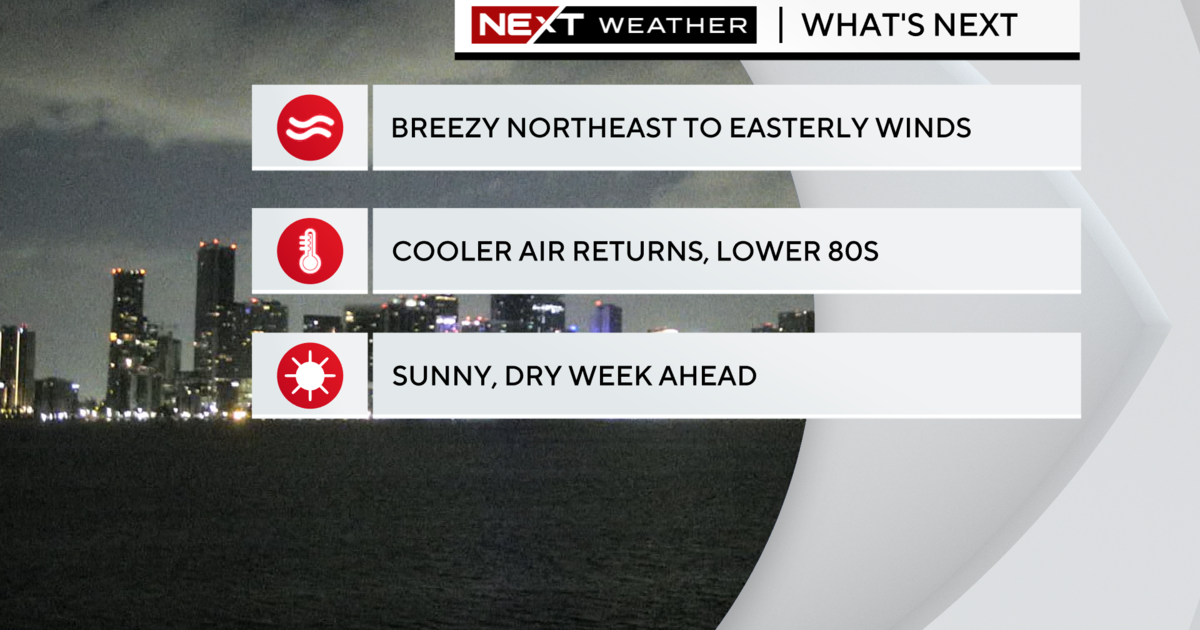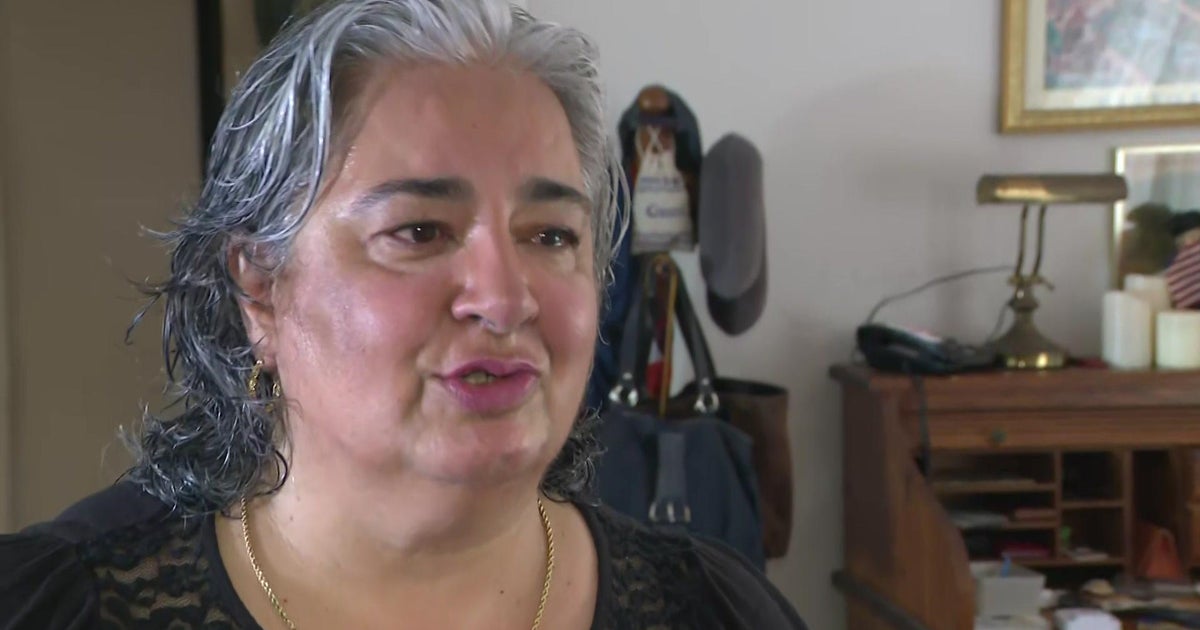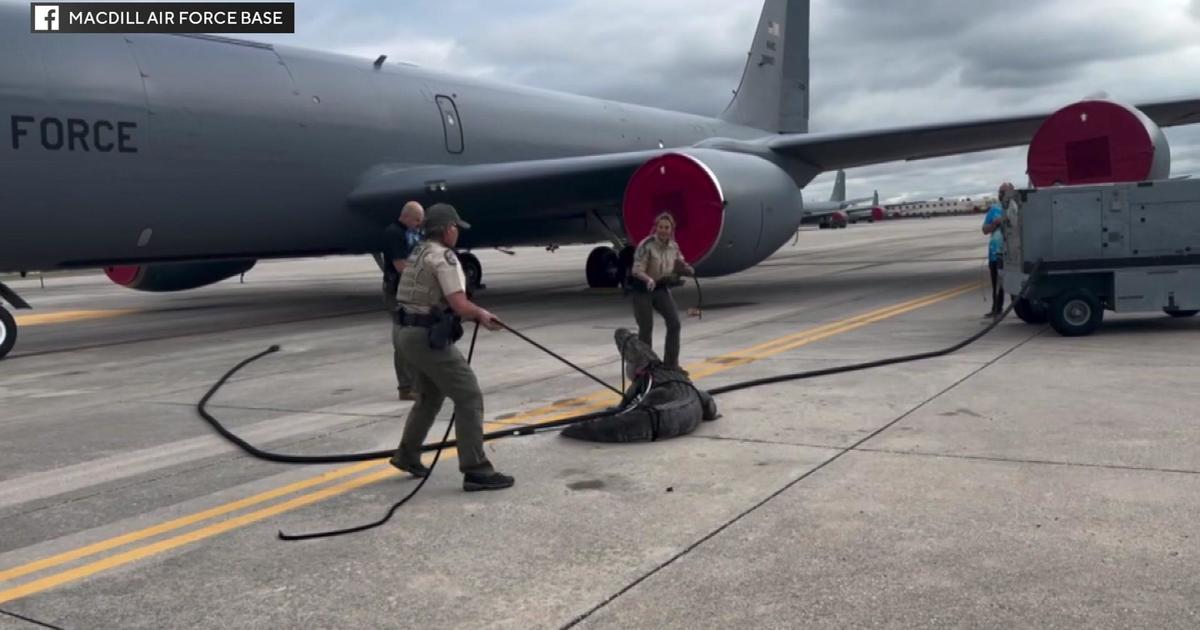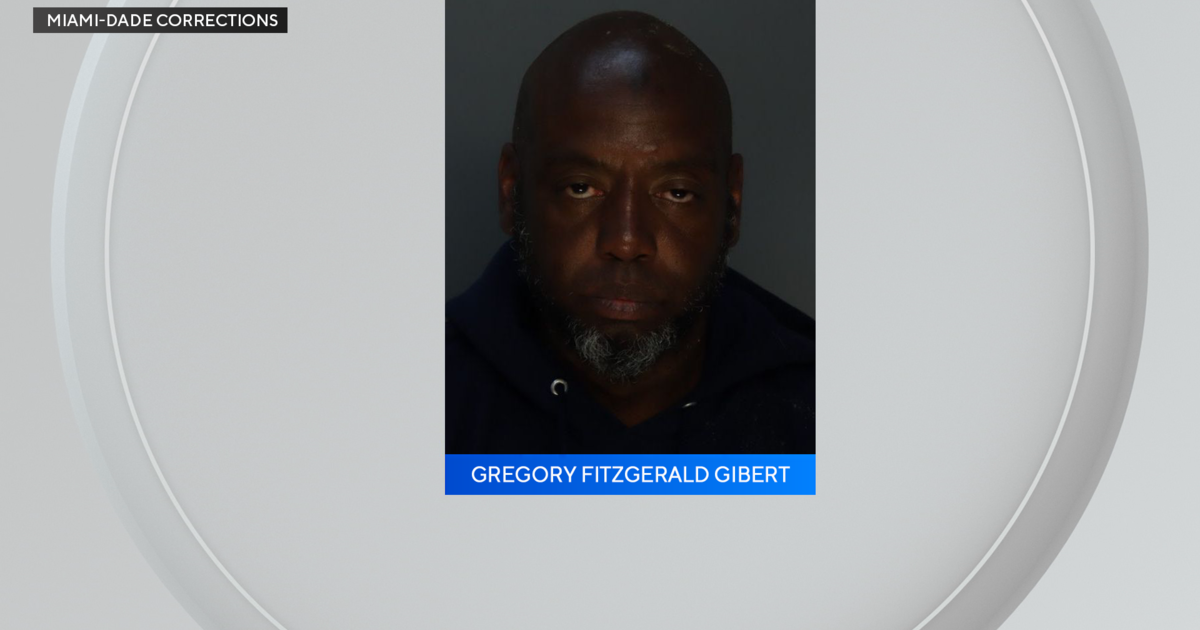Rehabbed Olive Ridley Sea Turtle Released Off Key West
KEY WEST (CBSMiami/NSF) - A non-native, juvenile olive ridley sea turtle, one of only six ever documented in Florida waters, was released Thursday off Key West's Higgs Beach by rehabilitation experts from the Florida Keys-based Turtle Hospital.
Nearly 500 adults and children gathered to observe the release, clapping and cheering when the turtle dubbed "Harry" entered the Atlantic Ocean and swam swiftly away from the beach.
"Harry" was rescued by recreational boaters in early February, entangled in a massive "ghost" fishing net, off the Upper Keys. Emaciated and near death, the reptile was transported in a Turtle Hospital ambulance to the facility in Marathon for treatment.
"He's an olive ridley sea turtle, which are not native to Florida," said Turtle Hospital manager Bette Zirkelbach, who estimated that Harry had been trapped in the net for months. "They're found in the South Atlantic and Pacific oceans; they are the most common sea turtle in the world, but not common to Florida."
As well as the other medical issues, Harry had entanglement injuries on all four flippers. At the Turtle Hospital, the reptile recovered after being treated with broad-spectrum antibiotics, intravenous nutrition, laser therapy, wound treatment, vitamins and a diet of fish, shrimp and squid.
Before Harry's release, the 30-pound reptile was fitted with a small satellite transmitter tag for tracking purposes. Tracking data should help marine biologists gain insights into Harry's movements in unfamiliar territory.
"With the satellite tracking tag on Harry, scientists hope to learn where these olive ridley sea turtles go that are not common to Florida," said Zirkelbach. "Where in the world is Harry going to go once he leaves Key West?"
The public can follow Harry's journey on the turtle's tracking page at http://www.turtlehospital.org.
Since it opened over 30 years ago as the world's first state-licensed veterinary sea turtle hospital, the Turtle Hospital has treated and rehabilitated more than 2,000 injured sea turtles. The facility is equipped with three "turtle ambulances" for emergencies and patient transport.
(©2019 CBS Local Media. All rights reserved. This material may not be published, broadcast, rewritten, or redistributed. The Florida Keys News Bureau contributed to this report.)



